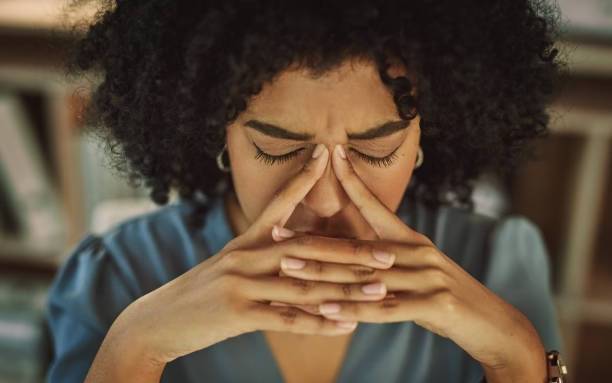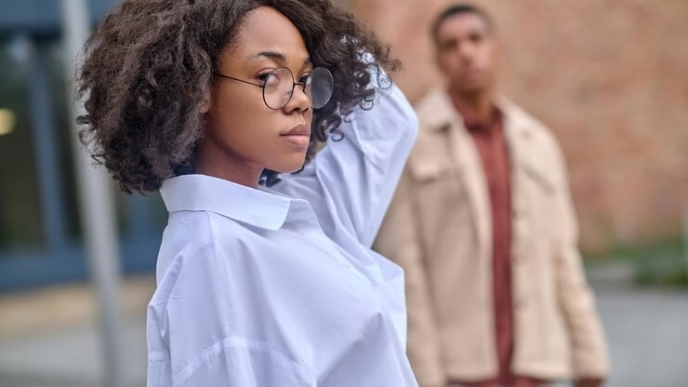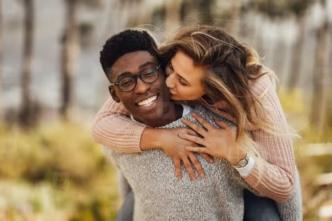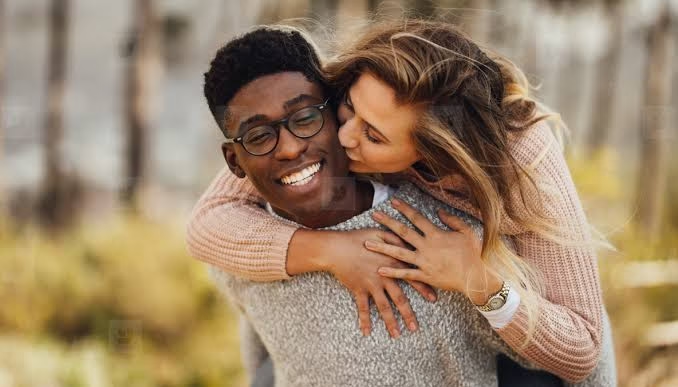Virginity was once a source of pride and honor for many women. Unfortunately, in today’s society, the perception has shifted, and for some women, it has become a source of shame due to societal pressure.
Women who were virgins were highly respected and considered morally upright. In some parts of the world, virgins were celebrated, and men who sought to marry them had to come from respected families.
In the early days, men recognized the value of women, respected them, and treated them with dignity. Men were less prone to jealousy because they trusted their wives, believing that their partners, who were often married as virgins, would remain faithful. There was a strong level of trust; even when men went on business trips for months, they had faith that their wives would not cheat.
So, what changed? Society has undergone drastic transformations. The widespread availability of sex, nudity, and pornography, along with the influence of social media and the entertainment industry, altered perspectives significantly.
According to Susanna Abse, a psychoanalytic psychotherapist at the Balint Consultancy, young people may struggle with intimacy issues due to their exposure to a large amount of pornographic material and sexual content.
Nudity became glamorized in the name of fashion, and body parts that were once meant to be covered were displayed publicly. This led men to lust more, which in turn drove them to seek sexual relationships without the commitment of marriage.
It has become common for society to view a woman in her late 20s or early 30s who is still a virgin as a red flag rather than a treasure. Many people believe that if a woman in this age group has not had any sexual experience, there must be something wrong with her.
Is Virginity at 30 a Rare Gem or a Red Flag in the 21st Century

Frankly speaking, finding a virgin woman to marry in the 21st century is quite challenging. It feels like a ‘Mission Impossible’ where you need to be like James Bond.
However, you could be lucky, some women continue to persevere despite societal pressures. Those in this situation often struggle to speak openly about their experiences for fear of judgment.
We live in a world where people talk about their sexual experiences comfortably, yet discussions about virginity remain silenced. Many individuals are judgmental; a close friend of mine shared her struggles, particularly the subtle criticisms she faces when she proudly states that she is a virgin. She is often labeled a “Virgin Mary,” considered “holier than thou,” or questioned if she has received any awards for being chaste. Others have tried to convince her to abandon her choice, urging her with comments like, “You are missing out on the fun.”
I firmly believe that virginity is a rare gem, rather than a red flag. Many young girls and women are confused about navigating this situation, pondering whether to give up their virginity or not.
There is a unique joy that comes from sharing this part of yourself with the right person, someone like your future husband. This is someone who truly values you for the contributions you bring to his life, someone who has demonstrated his commitment to being with you for the long term and not just for fun. He is the person who truly deserves your virginity; it is something that should be earned, not given away lightly.
What Drives Women to Stay Virgins? A Look at Beliefs and Choices

A research from the University College London shows that millennials remain virgins for longer, with 12.5 percent not having sex until the age of 26.
The decision to remain a virgin into adulthood is intentional and rooted in personal values, life experiences, or external influences. Multiple factors influence this decision, including:
1. Cultural and Religious Values: In many communities, virginity is associated with concepts of purity, morality, and honor. Most women may choose to abstain from sex due to religious teachings, cultural expectations, or a desire to adhere to traditional beliefs. For example, women in the Middle East preserve their virginity for their husbands due to strong religious beliefs.
2. Personal Principles and Self-Respect: Some women view virginity as a form of self-respect or personal integrity. This category of women strongly believes that sex should be reserved for committed relationships or marriage, aligning with their moral or philosophical standards.
3. Focus on Career or Education: For others, the decision is practical. Some women prioritize academic or professional goals over romantic or sexual experiences. They choose to postpone intimacy until they have established other areas of their lives.
4. Fear, Trauma, or Past Negative Experiences: Women who have experienced sexual trauma, harassment, or have received negative messages about sex may choose to delay or completely avoid it. These types of women need a safe space to let loose. For them, remaining a virgin can be a form of emotional self-protection rather than a conscious choice.
5. Lack of Suitable Partner or Opportunity: Sometimes, the decision is circumstantial. Some women simply have not found a partner they trust or feel deeply connected to and are unwilling to engage in sex without emotional intimacy.
6. Asexuality or Low Sexual Desire: For women who identify as asexual or have a naturally low libido, the choice to remain a virgin may stem from a genuine disinterest in sexual activity, rather than emotional or moral reasons.
9 Reasons Why Society Misinterprets Virginity at 30 as a Red Flag Rather Than a Virtue
It’s puzzling how one’s personal choice to remain a virgin into adulthood is often viewed with suspicion in an era that claims to value personal freedom. Virginity at 30 is not a problem, yet today’s morally confused society often labels it as such.
Here are some reasons why it raises eyebrows:
1. Sexual Experience Is Equated with Maturity: Some individuals gauge maturity by the extent of one’s sexual experience. Oftentimes, people assume that being sexually active signals emotional growth, which leads to the erroneous perception that those who haven’t “crossed that line” are immature or inexperienced in all aspects of life.
2. Media Normalizes Early Sexual Debut: Mainstream media has endorsed this narrative, as seen in everything from teen dramas to romantic comedies. It portrays sex as a milestone that everyone reaches in their early 20s—or even sooner. When virginity beyond that age is depicted, it’s typically used as a punchline.
3. Cultural Pressure to “Keep Up”: There is a subtle yet constant message that if you haven’t had sex by a certain age, you’re falling behind in life. This mindset treats virginity as a delay or setback rather than a conscious decision.
4. Misunderstanding of Personal Values: Individuals who choose to wait are often labeled as “too religious,” “repressed,” or “naive.” In reality, they may be thoughtful and self-aware, simply valuing deeper connections over casual encounters.
5. Virginity Is Often Associated with Dysfunction: Some assume there must be something ‘wrong’ with a 30-year-old virgin, like trauma, low self-esteem, or fear of intimacy, rather than considering that it could simply be a calm, conscious choice.
6. Hypersexual Culture Can’t Relate: In a society that commodifies sex and promotes hookups, the idea of not prioritizing sexual relationships is difficult for many to understand, leading them to interpret it as strange or problematic.
7. Lack of Representation in Conversations: Discussions about relationships and adulthood rarely include virgins, especially those over 30. This silence contributes to the perception that virginity is abnormal or strange at this age.
8. People Project Their Own Insecurities: Some individuals criticize virginity because it challenges their own choices. Deep down, they may perceive someone who has waited as possessing more self-control or discipline, which can feel threatening or intimidating, especially if they’ve long lost theirs.
9. Society Confuses Sexual Activity with Worth: Unfortunately, in many circles around the world, sexual desirability is tied to personal value. Choosing abstinence, even temporarily, is often wrongly interpreted as a lack of desirability or capability.
Is the Pressure to Lose Virginity Hurting Mental Health?

The pressure to lose your virginity can be just as damaging as being judged for choosing to keep it.
We live in a culture that glorifies sexual experience, and many young adults feel they’re falling behind if they haven’t had sex by a certain age, which leads to toxic feelings of shame and self-doubt.
The Silent Anxiety
The narrative that virginity is a milestone best crossed in the teens or early twenties is everywhere — movies, social media, and conversations. If you’re past that age, society may make you feel inadequate. This pressure can lead to:
- Low self-esteem
- Social isolation
- Anxiety
- Fear of intimacy
It’s the judgment and comparison, not virginity itself, that causes pain.
How to Talk About Virginity Without Shame or Awkwardness
Discussing virginity can be uncomfortable, whether you’re the one bringing it up or the one listening. The topic is often loaded with judgments, assumptions, and outdated societal norms. But it doesn’t have to be that way.
Whether you’re opening up to a partner, a friend, or simply trying to process your own feelings, here are 5 practical steps to help you have the conversation with honesty, confidence, and zero shame:
Step 1. Know Your “Why” First: Before discussing virginity, clarify your own reasons. Are you sharing to build trust in a relationship, set boundaries, ask questions, or seek support? When your purpose is clear, the conversation becomes more grounded and less awkward.
Step 2. Use Clear, Respectful Language: You don’t have to be graphic or overly clinical. Just be honest. Phrases like “I haven’t had sex yet” or “I’ve chosen to wait” are perfectly valid. At all costs, avoid apologizing or second-guessing your choice because there’s absolutely nothing wrong with being a virgin.
Step 3. Let Go of the Fear of Judgment: One of the biggest barriers is fear of being seen as inexperienced, too traditional, or not “normal.” The truth is, your sexual history (or lack of it) is no one’s business unless you choose to share it. If someone reacts weirdly or judges you, that says more about their person than it does about you.
Step 4. Make Space for Curiosity, Not Criticism: When someone else opens up about their virginity, respond with curiosity and kindness, not assumptions or awkward jokes. Ask if they’re comfortable discussing it before diving in. You can say, “Thanks for trusting me with that,” which can go a long way.
Step 5. Normalize the Conversation: Virginity shouldn’t be a taboo topic. Whether someone is 18 or 38, their story is valid. The more we speak about it openly and without shame, the easier it becomes for others to do the same. Virginity is personal, but it’s also a human experience. By stripping away the shame and expectations that often surround it, we create space for more genuine, healthy conversations.
In Conclusion, Everyone Moves at Their Own Pace
Sex is not a race. There’s no reward for doing it early and no punishment for waiting. Each person has unique experiences and timelines, and pressuring someone to meet an arbitrary deadline does more harm than good.
We should shift the conversation from shame to choice. Virginity isn’t a badge of honor or failure; it’s simply part of an individual’s journey. Mental health thrives when people make choices that align with their values, free from societal pressure.
So no matter your age, I encourage you to preserve your virginity for the right person, on your own terms.
Further Reading 👇
As humans, we have sexual needs, and our desires can sometimes become overwhelming. However, it’s important to learn how to manage these feelings, which can have a strong hold on us.
Read this article for practical steps on how to handle sexual desire in a healthy and constructive way.














